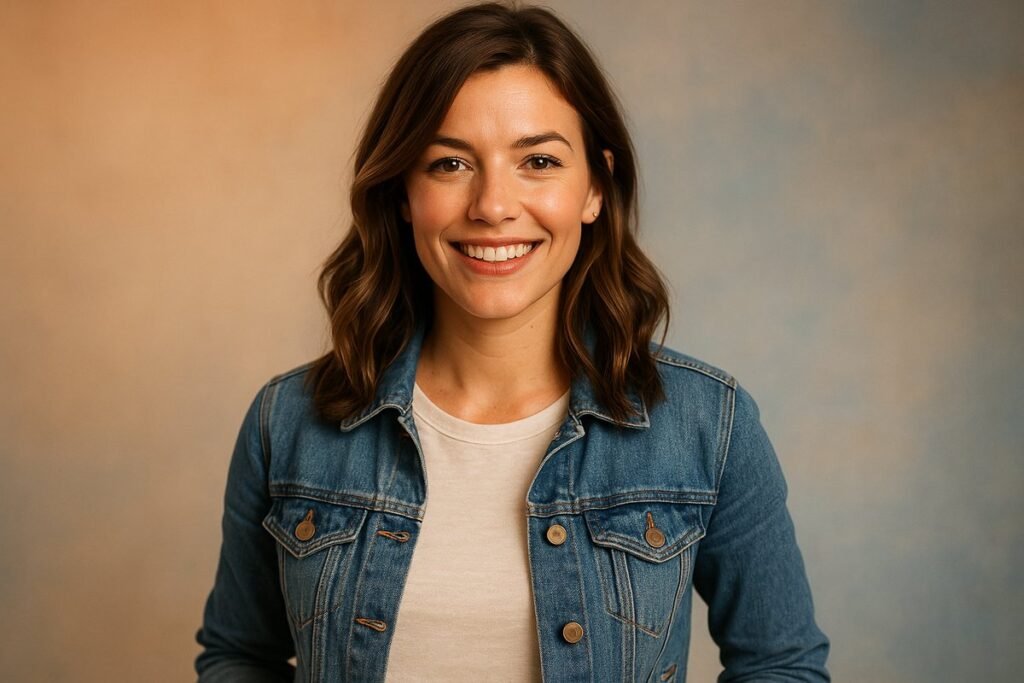Early Life and Educational Foundation
Lucy Richenda Shorthouse grew up in Tamworth, Staffordshire, after her family relocated to England from Kenya. The Midlands shaped her early years, though few could have predicted the remarkable career that lay ahead.
Her academic path took her to Selwyn College, Cambridge, where she studied English and Drama. The university years proved formative in more ways than one. As a member of Footlights, the legendary comedy troupe that launched countless British performers, she began developing the skills that would later define her stage presence.
After graduating in 2012, Shorthouse enrolled at the Italia Conti Academy of Theatre Arts. By 2015, she had completed her formal training. The combination of Cambridge’s intellectual rigor and Italia Conti’s practical expertise gave her a unique edge in an increasingly competitive industry.
The Breakthrough Role That Changed Everything
Theatre history was made in 2017 when Lucie Shorthouse originated the role of Pritti Pasha in “Everybody’s Talking About Jamie.” The musical, which began at Sheffield Crucible before transferring to London’s West End, told the story of a teenager who dreams of becoming a drag queen.
Pritti Pasha was no ordinary supporting character. She was the first Muslim character to appear in a musical, and her hijab was worn with pride rather than treated as a plot device. Shorthouse brought intelligence and warmth to the role, creating a character who felt authentic rather than tokenistic.
Audiences responded powerfully. When the WhatsOnStage Awards came around, Shorthouse won Best Supporting Actress in a Musical. The award was particularly meaningful because it came from audience votes rather than industry insiders. People connected with Pritti because they saw themselves reflected on stage, many for the first time.
Making Her Mark on British Television
Stage success opened doors, but television required a different skill set entirely. Shorthouse made the transition look effortless. Her early screen work included appearances in “Doctors” and “Line of Duty,” followed by a main role in the second and third series of Sky One’s “Bulletproof.”
Channel 4’s “We Are Lady Parts” showcased her comedic timing. The sitcom about an all-female Muslim punk band became a cult hit, and Shorthouse’s portrayal of band manager Momtaz demonstrated her range. She could do drama, comedy, and everything in between.
Then came “Rebus.” The BBC’s reimagining of Ian Rankin’s beloved detective novels cast Shorthouse as DC Siobhan Clarke opposite Richard Rankin’s John Rebus. Set in contemporary Edinburgh rather than the 1990s of the original books, the series gave both characters room to breathe.
Shorthouse’s Clarke is sharp, ambitious, and unafraid to challenge her difficult partner. She brings a Midlands accent to the role, something she fought to preserve. Regional accents have historically been underrepresented on British television, and she saw an opportunity to change that. Ian Rankin himself praised the adaptation, calling it “terrific” after watching the finished episodes.
A Voice for Diversity and Representation
Ask Lucie Shorthouse about her career, and she’ll talk about responsibility before accolades. Playing Pritti Pasha meant representing Muslim women in a medium that had largely ignored them. She took that duty seriously, consulting with the creative team to ensure authenticity.
Her activism extends beyond her roles. She’s a vocal feminist who supports the 50:50 initiative for gender equality in entertainment. Black Lives Matter, LGBTQ+ rights, and working-class representation all feature in her public advocacy. Some actors shy away from politics; Shorthouse leans into it.
The Midlands accent issue matters to her personally. Growing up, she rarely heard voices like hers on television. Now that she has a platform, she uses it to normalize regional speech patterns. It’s a small thing, perhaps, but representation works through accumulation rather than grand gestures.
The Art of Balancing Stage and Screen
Despite her television success, theatre remains Shorthouse’s first love. There’s an immediacy to live performance that cameras can’t replicate. Eight shows a week might sound exhausting, but she finds the routine creatively nourishing. Each performance offers a chance to discover something new about the character.
The technical demands differ wildly between mediums. On stage, energy must reach the back row. On screen, subtlety registers more effectively. Shorthouse has learned to modulate her performances accordingly, though she admits the adjustment took time.
She returned to Sheffield Crucible for “Talent” in 2021 and “Rock / Paper / Scissors” in 2022. These weren’t high-profile West End productions, but they allowed her to work with directors she respected and explore challenging material. Commercial success matters, but so does artistic growth.
Staying Grounded Despite Success
Fame holds little appeal for Lucie Shorthouse. She’s coined a term for her ideal career trajectory: the “clicky fingers actor.” That’s someone audiences recognize without quite placing, a familiar face who can still buy groceries without being mobbed.
Shortly before the pandemic, she moved back to the Midlands. London had served its purpose, but she wanted green spaces and family nearby. The decision proved prescient when lockdowns began. While many actors struggled in tiny city flats, Shorthouse had room to breathe.
Her personal life reflects the same groundedness. She describes herself as a “crazy cat lady” and maintains interests beyond acting. Health and wellness matter to her; she’s vegan and makes her own energy balls. These details might seem trivial, but they speak to someone determined to remain multidimensional despite industry pressures.
Social media presents a particular challenge. Instagram can be toxic, she admits, with its parade of perfected images. She takes regular digital detoxes to maintain perspective. Twitter serves professional purposes; Instagram is harder to resist but also harder to enjoy.
What Lies Ahead for Lucie Shorthouse
The trajectory seems clear: more television, possibly film, and continued theatre work when the right projects emerge. Shorthouse has expressed interest in exploring darker, more complex roles. Comedy comes naturally to her, but she wants to prove her dramatic range.
She’s already working steadily, which in acting terms constitutes success. The second series of “We Are Lady Parts” aired in 2024, and “Rebus” has generated enough buzz to suggest further opportunities in prestige drama. Casting directors have taken notice.
What sets Shorthouse apart isn’t just talent, though she has that in abundance. It’s her clarity about what matters. She wants meaningful work that challenges stereotypes and expands representation. She wants to stay close to family and maintain a private life. She wants to keep learning and growing as an artist.
These goals might seem modest compared to Hollywood ambitions, but they’re sustainable. Ten years from now, Lucie Shorthouse will likely be exactly where she wants to be: working consistently, choosing projects carefully, and using her platform to make British entertainment more inclusive. That’s not a bad legacy for someone who started out as a girl from Tamworth with a dream.







